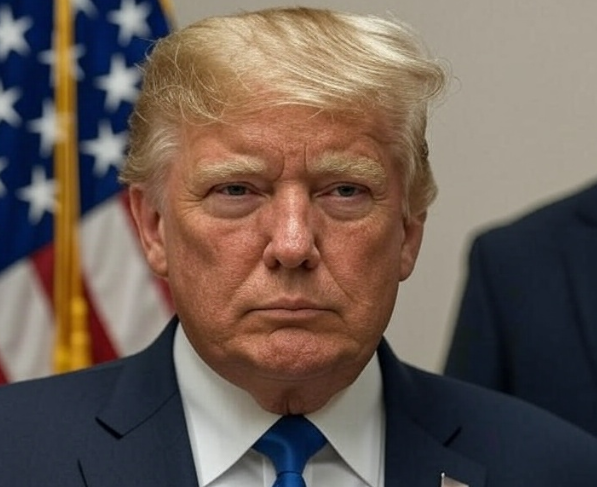Trump New Travel Ban Shakes the World:In a bold and controversial move, U.S. President Donald Trump has reintroduced a sweeping travel ban targeting several countries across Africa, the Middle East, and Asia. This new order, which mirrors the controversial travel ban from his first term in 2017, comes in response to a recent firebombing incident in Colorado, which Trump cited as a justification under national security grounds. The latest restrictions have led to international backlash, with Chad immediately announcing a suspension of U.S. visa issuance for American citizens in retaliation.
Trump New Travel Ban Shakes the World
In a bold and controversial move, U.S. President Donald Trump has reintroduced a sweeping travel ban targeting several countries across Africa, the Middle East, and Asia. This new order, which mirrors the controversial travel ban from his first term in 2017, comes in response to a recent firebombing incident in Colorado, which Trump cited as a justification under national security grounds. The latest restrictions have led to international backlash, with Chad immediately announcing a suspension of U.S. visa issuance for American citizens in retaliation.
The list of fully restricted countries now includes Afghanistan, Myanmar, Chad, the Republic of Congo, Equatorial Guinea, Eritrea, Haiti, Iran, Libya, Somalia, Sudan, and Yemen. Meanwhile, countries like Burundi, Cuba, Laos, Sierra Leone, Togo, Turkmenistan, and Venezuela face partial restrictions. The administration’s decision has revived tensions surrounding immigration and national security, with critics arguing that the policy unfairly targets vulnerable nations and disrupts the lives of countless individuals hoping for a better future.
In Togo, the announcement was met with frustration and despair. Many residents in Lomé, the capital, expressed concern over the dashed hopes of studying or working in the United States—a common aspiration in a country facing economic difficulties. Even professionals such as customs officers and inspectors are now uncertain about their ability to travel. The ban, they say, closes doors that offered a pathway to stability and opportunity abroad.
In Somalia’s capital, Mogadishu, strong opposition to the ban emerged swiftly. Citizens rejected the U.S. government’s characterization of their country as dangerous. Local voices emphasized that Somalia is currently one of the safest and most stable nations in East Africa. They pointed to improved security conditions and growing national resilience. Critics also accused the United States of spreading misinformation and undermining Somalia’s progress, arguing that the country is rich in resources and increasingly self-sufficient. While the al-Qaeda-linked group al-Shabaab remains a threat in some regions, officials and citizens stressed that the overall security environment has significantly improved.
Meanwhile, Sierra Leone took a more diplomatic stance. The country’s information minister, Chernor Bah, clarified that the restrictions were based on a high rate of U.S. visa overstays in both student and visitor categories. He emphasized that the restriction is not a full ban. Citizens holding valid visas or legal residency are still allowed entry, and the government hopes to work closely with U.S. officials to resolve the issue. A 90-day review period has been established, and Sierra Leone expressed its commitment to engaging with American authorities to ensure removal from the restricted list in future updates.
Despite the far-reaching implications of the policy, the Trump administration has made select exemptions. With the United States set to host global sporting events such as the World Cup and the Olympics, athletes, support personnel, and their immediate relatives from the listed countries will still be allowed to travel to the U.S. for these events. These exemptions underscore the complexities involved in enforcing such travel bans, especially when international cooperation and competition are at stake.
Overall, President Trump’s renewed travel ban has stirred global controversy and raised questions about U.S. immigration policy, diplomatic relations, and the balance between national security and human rights. As affected countries react with frustration, caution, or cooperation, the world watches to see how this new chapter in U.S. foreign policy unfolds.
Disclaimer:
This article is intended for informational purposes and news commentary only. It does not represent any political position or endorsement. All facts and events are derived from publicly available sources. For official travel guidance, readers should consult government advisories and immigration authorities.

